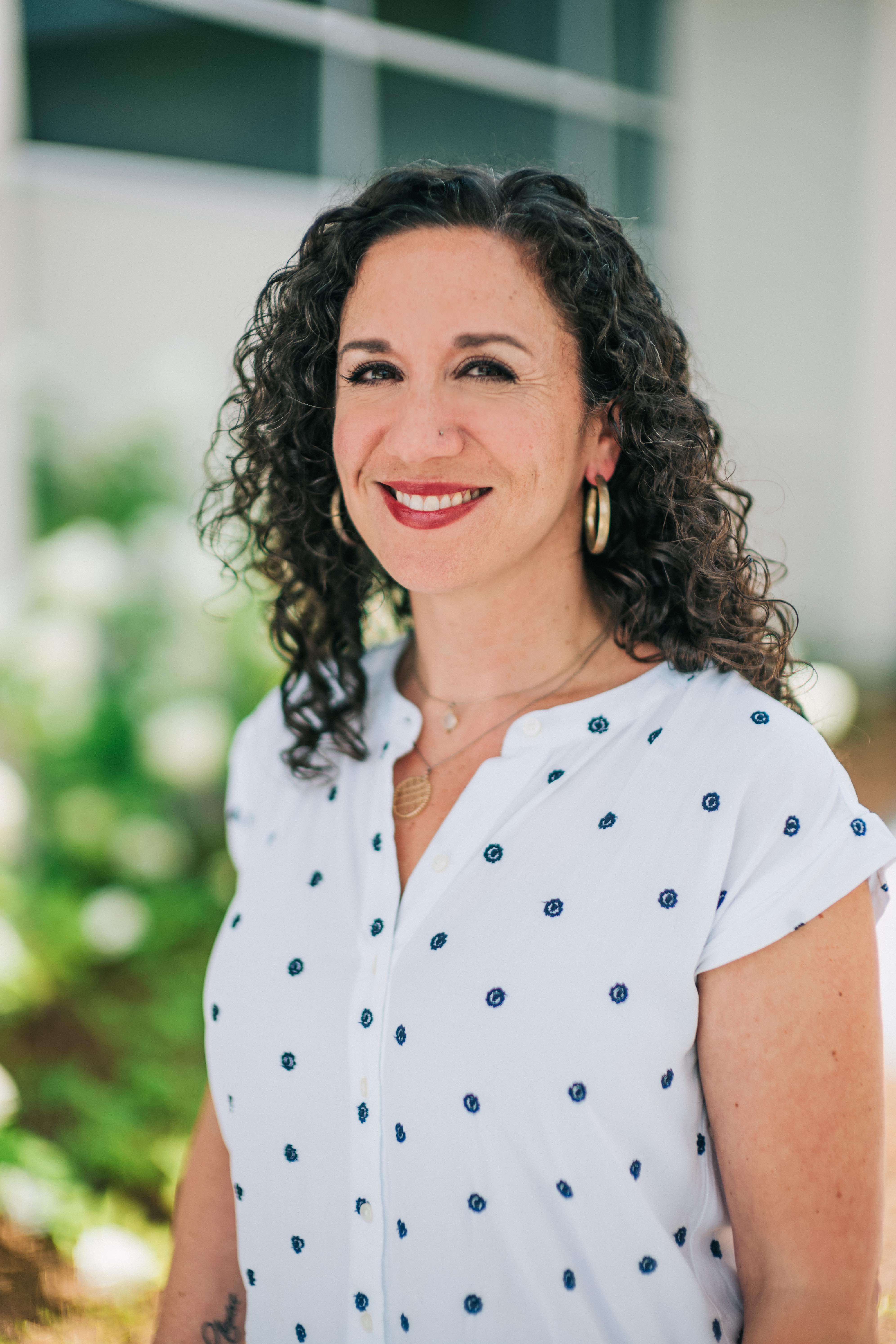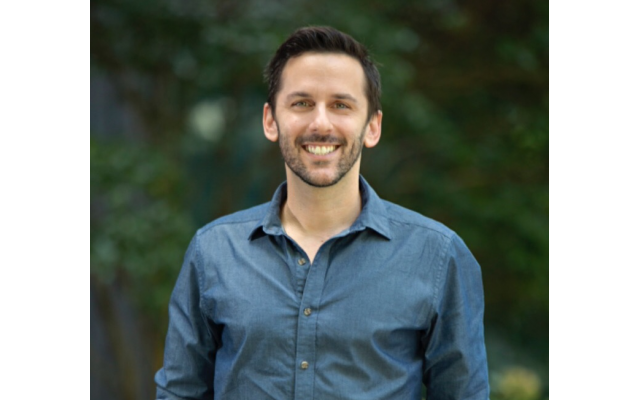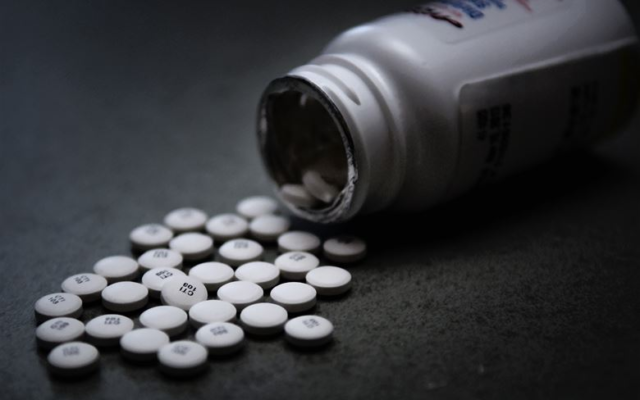Is the Jewish Stigma Around Addiction Holding Us Back?
Jewish stigmas around addiction and substance abuse can prevent people from acknowledging a problem and seeking treatment.
When it comes to addiction and substance abuse, the stigma they receive from the Jewish community often prevents people from acknowledging a problem and seeking treatment.
“I think one of the most powerful ways that we can address stigma is by telling our stories,” said Leslie Lubell, program manager of Helping Atlantans Manage Substance Abuse, or HAMSA, a program of Jewish Family & Career Services.
Lubell has her own story to tell. She is in both addiction and eating disorder recovery and says talking openly about it is important for her own healing and for helping to dispel the stigma.
Born and raised deeply involved in the Atlanta Jewish community, Lubell went to Camp Barney Medintz and was involved in BBYO. “I did all of the Jewish things,” she said. Lubell struggled with feelings of discontent and lack of belonging, ultimately developing bulimia in her late teens. “I was in and out of treatment several times,” she said. “Life went on, but I always struggled with depression. I was in survival mode for a really long time.”

In her mid-30s, Lubell developed an addiction to marijuana and later began abusing alcohol and other drugs as well. After spending time recovering, Lubell began working for HAMSA and was promoted to her current position last year. Her personal experience with addiction has caused her to feel strongly about how society discusses the effects of marijuana. “I believe in the medicinal value of cannabis. I’m pro-legalization. The problem I have is the cannabis industry is telling people it’s harmless and not addictive, and that is absolutely not true. I am living proof of that,” she said. “Anything that has a mood-altering property can be abused, period.”
Organizations in Jewish Atlanta are trying to address addiction by focusing new efforts on education in day schools, synagogues and other Jewish organizations.
HAMSA works closely with other Jewish mental health and addiction treatment organizations. “While I believe the Atlanta community is much further along than two years ago, many people still aren’t ready to talk about mental health and substance abuse,” said Justin Milrad, co-founder and president of The Blue Dove Foundation. “We, as a community, have to open up the conversation and feel comfortable leaning on one another.”
A Dec. 9 event, #QUIETINGTHESILENCE, will feature personal stories from people in addiction recovery, including HAMSA Information & Referral Specialist Michelle Day. The event will take place at The Temple and is leading up to the organization’s book release in the spring, said Gabby Spatt, executive director Blue Dove.

Both Lubell and Milrad maintain that it’s very difficult to measure the rates and types of addiction in the Jewish community, but they assume they track with the rest of the country. “You have to look at what economic demographic people fall into. We’re not at any higher or lower risk than anybody else,” Lubell said. “With that being said, anecdotally, I can’t tell you how many Jewish clients say the first time they drank was at a Jewish event. There are a lot of people who will tell you that their first exposure to alcohol was on a Jewish holiday.”
Last year, Moshiel Newman Daphna from New York, whose drag queen persona is called Lady SinAGaga, spoke at a HAMSA event. “This is a gay Jewish man in recovery who grew up in the Orthodox world in New York. Again, he started drinking when he was 12 or 13 years old on Shabbat,” Lubell said. “The Orthodox community is not immune.”
Orthodox Jews suffering from addiction often seek help within their own community, but HAMSA is seeing more calls coming from Jews across all backgrounds.

Daniel Epstein, director of client care for The Berman Center, also cites marijuana as a particular concern, along with vaping and technology. “Cannabis is so destigmatized that there is a dangerous branding around it. Anecdotally, I’m hearing much more about cannabis-induced psychosis,” he said.
To address addiction among youth, HAMSA is excited to partner with an organization called Beit T’Shuvah in Los Angeles to create a youth education program for the Jewish day schools in Atlanta next year. “They have a program that they’ve developed with a seasoned education professional that spans sixth, seventh and eighth grade to help educate the kids about the risks of drug and alcohol abuse and how addiction looks across the board,” Lubell said.
It is developmentally appropriate, with sixth graders learning about addictions to electronics and vaping, and it emphasizes internally motivated decision-making.
“Kids are more likely to make better choices when they are empowered with better information about what the risks are,” Lubell said. “I’m a realist. I know that teens are going to experiment with drugs and alcohol. What we can do is help our teens understand what the real risks are.”
According to Lubell, a big risk for young people is now fentanyl, which has been turning up laced in cocaine and counterfeit pharmaceuticals, and it can be deadly. “You can take a pill that you think is a Xanax,” she said. “And you don’t know what’s in it. That one pill can kill you and that happens all the time. And it’s happened in plenty of Jewish families around the country.”
Both HAMSA and The Blue Dove Foundation are also focusing on working with synagogues. This year, The Blue Dove Foundation again distributed a high holiday toolkit to synagogues around Atlanta encouraging rabbis to address statistics and support during Rosh Hashanah and Yom Kippur: “Rabbi Brad Levenberg from Temple Sinai wrote a beautiful ‘Mi Sheberach’ prayer for those in recovery,” Milrad said.
HAMSA very often gets referrals from synagogues, Lubell said: “We’re working on creating programming that the synagogues want around addiction and recovery.”
Along with stigma, the big challenge for patients is affording treatment, according to Lubell. The federal government’s aid packages, such as the 21st Century Cures Act of 2016, are helpful but focus on the opioid crisis specifically and spend less resources on alcohol and other drugs, she said. A big concern is the demographic that isn’t homeless but still can’t afford treatment. “You have to remember that drug and alcohol treatment is for profit. It’s a business,” she added.
HAMSA helps patients to choose the best treatment centers that are within their budget. “I wish the first question I have to ask people isn’t ‘Are you insured?’” she said. “If they’re uninsured and have absolutely no money, the options are going to be more limited. That’s just the way it is, unfortunately.” Because of this, Lubell doesn’t think many patients are being assessed correctly. “What we have evolved into is a behavioral health system that is in many ways driven by marketers. At least that’s what I see in Atlanta.”
According to Epstein, the Jewish community is beginning to move in the right direction. “I’ve seen a substantial shift over the past two years,” he said. “When I first moved to Atlanta, there was just this thick denial or underplaying and an unwillingness to acknowledge what’s going on. For various reasons, and one was the increase of programming from Jewish organizations around mental health, they’ve started to increase exposure and reduce stigma.”




comments